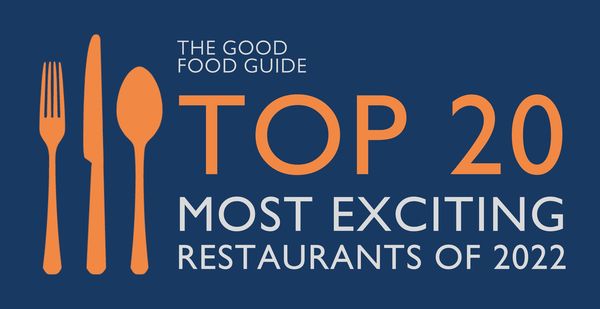You grew up in post-war France - what was the food like?
There was access to all different types of food as the people were coming out of years of oppression and bad times, so they made sure to prioritise celebrating and enjoying life. I remember the food being very good in France. There were no supermarkets, so all the produce came from local markets and farms. It was all seasonal. The only limitation I remember was that chicken was eaten only once a week on Sunday as they were expensive. This is now entirely opposite as chicken is now cheap and rubbish.
I remember the first time I ate at a restaurant, which was with my grandmother when I was 7 years old. She would go to the local market to sell the produce from her farm and I would go with her. If she sold very well, we would go to the restaurant after to celebrate. The town’s restaurant was small and local. They had big tables and everyone would sit around and eat the lunch menu together. Of course, I loved it as going out at that kind of age, especially during the time I grew up, was always exciting. Now you have everything you want but in those days we enjoyed all the little things - there was no television or telephones or video games to enjoy.
_________________________________________
What would you say is the biggest difference with your experiences of French restaurants compared to British ones?
When I came to London in 1970, the restaurants in England were shit and not very interesting. For example, an avocado was a luxury! A starter might have been a grapefruit with sugar and a confit cherry. The food was very poor in England. In France, it was very good because we were eating local, tasty food which was in season.
The best thing in England back then was smoked salmon to start and roast beef to follow. If you wanted to eat well or expensively you had to go to hotels. By contrast, France had lots of small restaurants, serving local food which was made by people who loved cooking.
As well as this, the British people are pretty squeamish when it comes to offal, which meant rations were used far more during the post-war period. Meats like horse and rabbit weren’t eaten, whereas in France it was. France also produces lots of wine, which made everything better.
_________________________________________
Having spent over 50 years in the kitchen, how has the industry changed?
When I had a restaurant, I would always make sure there was no wastage. I used everything to maximise profits. Nowadays there are huge companies that look after this for you.
When I came to England, in my personal experience, restaurants were looking after their staff. I mean, I would be working five days a week at 12 hours a day, sometimes more. But we were there to do a job, and I loved it. To do something good and to do something bad takes exactly the same time, so I would say the most important thing is to enjoy the job so that you do it properly.
Having said that we would work much harder than they do now but it was part of our job. Life now is so different and much more expensive, so the wages definitely have to go up, but I don’t understand why you have to stop a guy who enjoys cooking from working longer and harder.
_________________________________________
Were you ever subjected to poor working conditions?
Never. If you’re not happy with where you are working, leave. Luckily, it’s a profession where you can find a job very fast. Whenever I would work at a place where I was not learning what I wanted to learn, I would go. Chefs should have freedom and be able to do what they like happily and safely.
_________________________________________
What is the most shocking encounter you experienced whilst working as a chef?
I had a lot of fun in the kitchen. We also had disasters. When you work in a team, they become your friends so you have good times - mostly when work is finished and you go out all together. I don’t remember having a bad time, except maybe when there was a stressful day. You tend not to remember the bad times, I remember only the good times.
_________________________________________
You’ve mentioned to me a few times that you came across unsavoury behaviour in the kitchen - how did you deal with it?
Whilst I was working at Le Gavroche, a guy was making a lemon sorbet, and accidentally used the fish stock, so he ended up making a fish lemon sorbet. The most important thing is to taste the food while you make it, but mistakes can happen. It is no surprise to say that the dessert was not a success. At the time it wasn’t funny, but now I laugh about it.
_________________________________________
What would you like to see change in the food industry?
I would love to have more people working in the industry who are more interested in cooking rather than making a wage. Of course, you need enough money to survive, but the most important thing shouldn’t be money, at least at the beginning - it should be to learn. Learn learn learn! Don’t worry about the money, that will come… so long as you are good at what you do and you enjoy doing it.
Staff should be treated more like part of a family. It’s important that they work hard, but more important that they enjoy working with you.
_________________________________________
Can you remember the best experience you ever had at a restaurant - what matters to you?
First, you have to have good food, service and ambience. The three must work together. I am almost 74, and unsurprisingly I have been to many many restaurants so I cannot give you the one restaurant which I think is the best in the world. Saying that, if I could choose my last meal on earth I would go to BACONE in Provence and have bouillabaisse, which is a fish dish in a vegetable and fish bone sauce. Id’ have it with a bottle of a good Burgundy, preferably Bâtard-Montrachet. To finish I’d have my grandmother’s apple tart.
_________________________________________
You’ve mentioned in previous interviews (and to me) that winning so many awards didn’t really bother you, and that ‘Koffmann’s’ was only ever about the food. With this in mind, how do you choose where to eat?
Word of mouth. You read up and talk to people, and then you go and try. You are your own guide, too.
_________________________________________
Finally, would you recommend The Good Food Guide as a chef as well as a diner?
Yes. It’s practical and informative. It is also interesting and helpful to hear the reports as a chef as well as a diner. It is also great for people who travel to give them new ideas.








